With impeachment over, critics see Donald Trump ‘retribution tour’
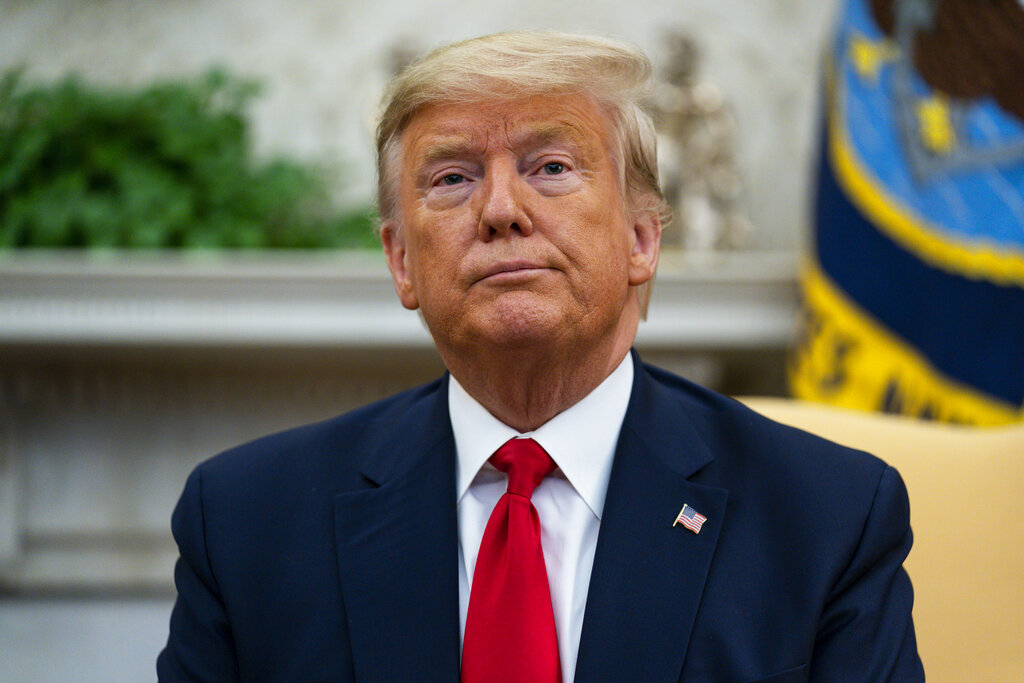
Trump has told confidants in recent days that he felt both vindicated and strengthened by his acquittal in the Senate.
House committee subpeoneas Michael Flynn, Rick Gates in Russia probe
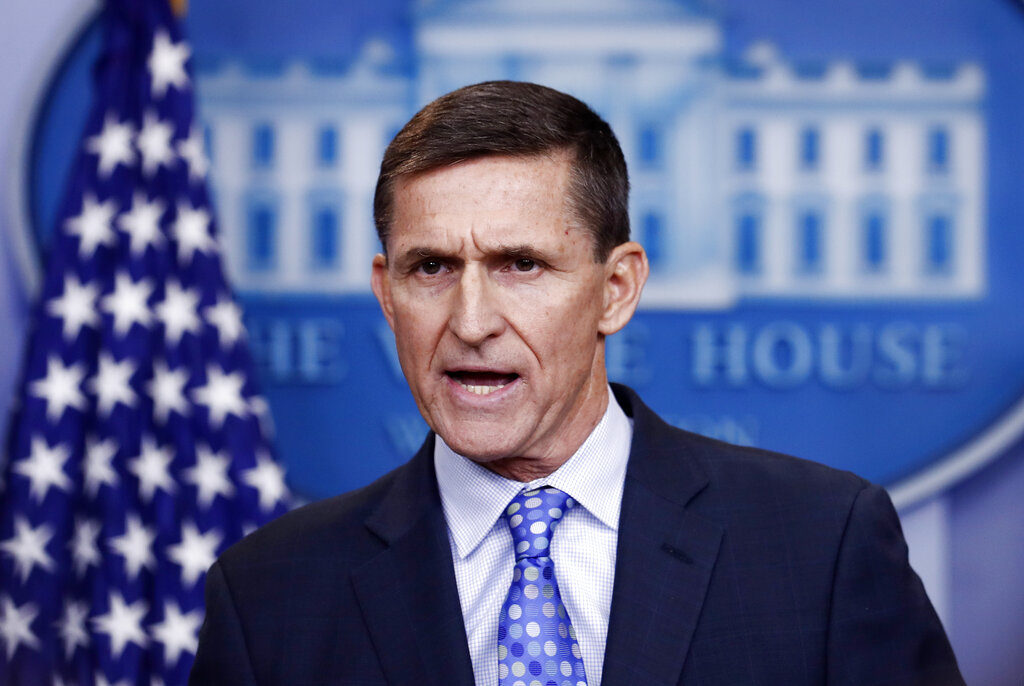
The House Intelligence Committee has subpoenaed former White House national security adviser Michael Flynn and former Trump campaign aide Rick Gates as part of its investigation into Russian interference in the 2016 U.S. presidential election. Committee Chairman Adam Schiff said Thursday the committee is examining “deep counterintelligence concerns” raised in special counsel Robert Mueller’s report and “requires speaking directly” with Flynn and Gates, who were important witnesses for Mueller’s investigation. “The American people, and the Congress, deserve to hear directly from these two critical witnesses,” the California Democrat said in a statement. “We hope these witnesses come to recognize their cooperation as being with the United States, not merely the Department of Justice.” The subpoena seeks documents and testimony from both men. Letters sent to their lawyers request that records be produced by June 26 and that they testify before the committee on July 10. Flynn admitted lying to the FBI about his conversations with the Russian ambassador to the United States and awaits sentencing. He was supposed to have been sentenced last December, but midway through the hearing abruptly asked for it to be postponed so that he could continue cooperating with the Justice Department and earn additional credit toward a reduced sentence. Schiff told reporters Thursday that “there are a whole host of issues that we want the opportunity to discuss.” “We have not had that opportunity over the past couple of years because of their involvement in their own cases and now potentially … in the cases involving others,” he added. Schiff told reporters the committee is interested in Flynn’s discussions with former ambassador Sergey Kislyak about sanctions imposed on Russia as well as his involvement in foreign business deals. Asked if he thought Flynn and Gates would appear, Schiff said, “I would hope that they would consider it valuable as a part of their cooperation, to show the court that they are doing everything that they can to assist the United States government, that they will also assist the Congress.” Flynn’s attorney, Sidney Powell, said in an email to The Associated Press, “The General is continuing to cooperate with the government,” but she declined to comment on the subpoena. Gates’ lawyer did not immediately return an email message about the subpoena. Powell, a former federal prosecutor who has been an outspoken critic of Mueller’s investigation, was recently hired by Flynn after he fired his previous lawyers. The change may herald a shift in Flynn’s legal strategy in the final stages of his case. Gates pleaded guilty to conspiracy and false statement charges related to Ukrainian lobbying and political consulting he did with ex-Trump campaign chairman Paul Manafort, who’s been sentenced to more than seven years in prison. Associated Press writer Susannah George contributed to this report. Republished with the permission of the Associated Press.
Ex-Trump campaign chairman Paul Manafort guilty on 8 charges
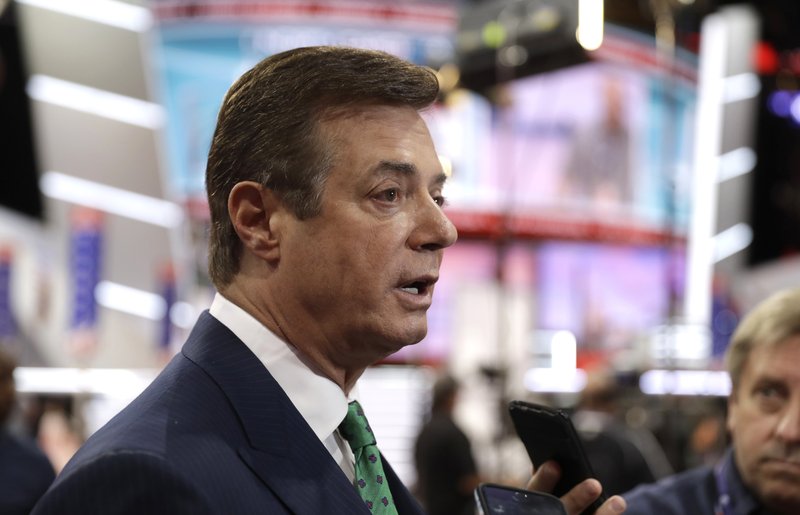
Paul Manafort, the longtime political operative who for months led Donald Trump’s successful presidential campaign, was found guilty of eight financial crimes in the first trial victory of the special counsel investigation into the president’s associates. A judge declared a mistrial Tuesday on 10 other counts the jury could not agree on. The verdict was part of a stunning one-two punch of bad news for the White House, coming as the president’s former lawyer, Michael Cohen, was pleading guilty in New York to campaign finance charges arising from hush money payments made to two women who say they had sexual relationships with Trump. WHAT HAPPENED IN COURT? The jury returned the decision after deliberating four days on tax and bank fraud charges against Manafort, who led Trump’s election effort during a crucial stretch of 2016, including as he clinched the Republican nomination and during the party’s convention. Manafort, who appeared jovial earlier in the day amid signs the jury was struggling in its deliberations, focused intently on the jury as the clerk read off the charges. He stared blankly at the defense table, then looked up, expressionless, as the judge finished thanking the jury. “Mr. Manafort is disappointed of not getting acquittals all the way through or a complete hung jury on all counts,” said defense lawyer Kevin Downing. He said Manafort was evaluating all his options. The jury found Manafort guilty of five counts of filing false tax returns on tens of millions of dollars in Ukrainian political consulting income. He was also convicted of failing to report foreign bank accounts in 2012 and of two bank fraud charges that accused him of lying to obtain millions of dollars in loans after his consulting income dried up. The jury couldn’t reach a verdict on three other foreign bank account charges, and the remaining bank fraud and conspiracy counts. WHAT’S NEXT FOR MANAFORT? The outcome, though not the across-the-board guilty verdicts prosecutors sought, almost certainly guarantees years of prison for Manafort. It also appears to vindicate the ability of special counsel Robert Mueller’s team to secure convictions from a jury of average citizens despite months of partisan attacks, including from Trump, on the investigation’s integrity. The verdict raised immediate questions of whether the president would seek to pardon Manafort, the lone American charged by Mueller to opt for trial instead of cooperating. The president has not revealed his thinking but spoke sympathetically throughout the trial of his onetime aide, at one point suggesting he had been treated worse than gangster Al Capone. The president on Tuesday called the outcome a “disgrace” and said the case “has nothing to do with Russia collusion.” WHAT DOES THIS MEAN FOR THE MUELLER PROBE? The trial did not resolve the central question behind Mueller’s investigation — whether Trump associates coordinated with Russia to influence the election. Still, there were occasional references to Manafort’s work on the campaign, including emails showing him lobbying Trump’s son-in-law, Jared Kushner, on behalf of a banker who approved $16 million in loans because he wanted a job in the Trump administration. Manafort urged Kushner to consider the banker, Stephen Calk, for secretary of the Army. Though Kushner responded to Manafort’s email by saying, “On it!” Calk ultimately did not get an administration post. For the most part, jurors heard detailed and sometimes tedious testimony about Manafort’s finances and what prosecutors allege was a yearslong tax-evasion and fraud scheme. Manafort decided not to put on any witnesses or testify himself. His attorneys said he made the decision because he didn’t believe the government had met its burden of proof. His defense team attempted to make the case about the credibility of longtime Manafort protege Rick Gates, attacking the government’s star witness as a liar, embezzler and instigator of any crimes while trying to convince jurors that Manafort didn’t willfully violate the law. Gates spent three days on the stand, telling jurors how he committed crimes alongside Manafort for years. He admitted to doctoring documents, falsifying information and creating fake loans to lower his former boss’ tax bill, and also acknowledged stealing hundreds of thousands of dollars without Manafort’s knowledge by filing fake expense reports. On Wednesday, defense lawyers asked the judge to keep under seal a bench discussion that referenced the special counsel’s pre-trial dealings with Gates. Prosecutors had initially asked the judge not to make the discussion public because of Mueller’s ongoing probe. WHAT WAS THE EVIDENCE? Beyond the testimony, prosecutors used emails and other documents to try to prove that Manafort concealed from the IRS, in offshore accounts, millions of dollars in Ukrainian political consulting feeds. Overall, they said, he avoided paying more than $16 million in taxes. Central to the government’s case were depictions of an opulent lifestyle, including a $15,000 ostrich jacket, luxury suits and elaborate real estate that prosecutors say was funded through offshore wire transfers from shell companies in Cyprus and elsewhere. U.S. District Judge T.S. Ellis III repeatedly grew impatient with prosecutors as they sought to demonstrate Manafort’s garish tendencies. The clashes between the judge and the prosecutor became a sideshow of sorts during the weekslong trial, with the judge at one point appearing to acknowledge that he had erroneously scolded them. After the trial, Ellis complimented lawyers on both sides for “zealous and effective representation.” He also remarked on his surprise at the level of attention the case has received and the criticism he received for his management of the trial. “We all take brickbats in life,” Ellis said. ANOTHER TRIAL LOOMING? The trial in Alexandria, Virginia, is the first of two for Manafort. He faces a trial later this year in the District of Columbia on charges of conspiracy against the United States, conspiracy to launder money, making false statements and acting as an unregistered foreign agent for Ukrainian interests. He is also accused of witness tampering in that case. Republished with the permission of the Associated Press.
Donald Trump: If FBI spied on my campaign, ‘bigger than Watergate!’
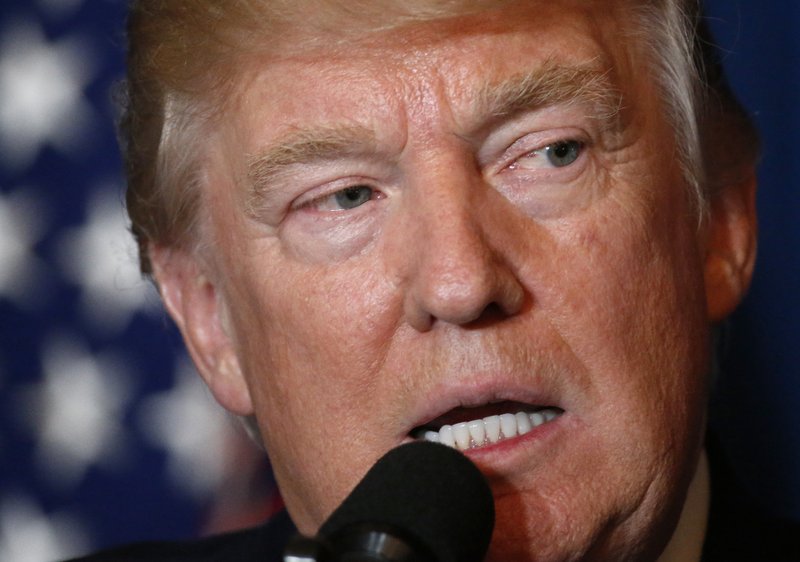
President Donald Trump lent credence Thursday to reports that FBI informants had infiltrated his presidential campaign, saying that “if so, this is bigger than Watergate!” Trump’s comments came on the anniversary of Robert Mueller’s appointment as special counsel to head the Justice Department probe into possible coordination between Russia and Trump campaign officials, an investigation Trump repeatedly has called a “witch hunt.” “Wow, word seems to be coming out that the Obama FBI ‘SPIED ON THE TRUMP CAMPAIGN WITH AN EMBEDDED INFORMANT,’” Trump said Thursday on Twitter. “Andrew McCarthy says, ‘There’s probably no doubt that they had at least one confidential informant in the campaign.’ If so, this is bigger than Watergate!” McCarthy, a contributing editor at the National Review, wrote an article published last week headlined “Did the FBI Have a Spy in the Trump Campaign?” The New York Times reported separately this week that at least one government informant met several times with Carter Page and George Papadopoulos, both former foreign policy advisers on Trump’s Republican campaign. The newspaper attributed the information to current and former FBI officials. The Watergate scandal in the early 1970s occurred following a break-in by five men at Democratic Party headquarters at the Watergate building in Washington and subsequent attempts by the administration of President Richard Nixon to hide its involvement. Nixon, a Republican, ultimately resigned from office as a result of the ensuing investigation. Meanwhile, Trump’s attorney Rudy Giuliani said that the president still wants to testify in the Russia probe. Speaking Thursday on “Fox and Friends,” the former New York mayor said Trump will only sit down with Mueller if “we feel there’s a way to shorten this thing.” He added that Trump remains eager to offer his “side of the case.” Giuliani has been urging Mueller’s team to wrap up the investigation now that the probe has reached the one-year mark. Giuliani’s team has been weighing whether to allow Trump to sit for an interview with Mueller. He said the legal team is “pretty comfortable, in the circumstances of this case, that they wouldn’t be able to subpoena him personally.” While the Supreme Court has never definitively ruled on the subject, it appears that a sitting president could be forced to testify. In 1974, justices held unanimously that a president could be compelled to comply with a subpoena for tapes and documents. If Trump were subpoenaed and did not want to testify, he could always invoke his constitutional right not to testify against himself and decline to answer questions. But that act would pose significant political risk. Giuliani also repeated that Mueller’s team has indicated it would not attempt to indict Trump, as he told The Associated Press on Friday. Justice Department legal opinions from 1973 and 2000 have suggested that a sitting president is immune from indictment and that criminal charges would undermine the commander in chief’s ability to do the job. Giuliani told Fox News Channel’s Laura Ingraham on Wednesday that Mueller “has all the facts to make a decision” after 12 months investigating Russian meddling in the election and possible collusion with Trump’s campaign. “Mueller should now bring this to a close,” said Giuliani. “It’s been a year. He’s gotten 1.4 million documents, he’s interviewed 28 witnesses. And he has nothing, which is why he wants to bring the president into an interview.” “It’s about time to say enough. We’ve tortured this president enough,” he added, describing the investigation as being “like a big weight” on the president’s back. So far, the special counsel’s office has charged 19 people — including four Trump campaign advisers — and three Russian companies. Trump’s former national security adviser, Michael Flynn, and his deputy campaign chairman, Rick Gates, have pleaded guilty and are now cooperating with the probe. Trump, however, has panned it as a “witch hunt” intended to discredit his presidency and has insisted that Russia had nothing to do with his winning campaign. Giuliani, who is working for the president pro bono, said Wednesday that the probe “is not good for the American people, and the special counsel’s office doesn’t seem to have that sort of understanding that they’re interfering with things that are much bigger than them.” Republished with the permission of the Associated Press.
Bob Sparks: Donald Trump campaign shakeup — will it be enough?

Donald Trump and his campaign are sending a signal with the announcement of Steve Bannon as campaign CEO and Kellyanne Conway as campaign manager. Aside from the clear message that his is a campaign in trouble, it also provides a clear picture of a major focus of his campaign going forward. That focus is to make the election about Hillary Clinton and not Donald Trump. So far, Trump’s world-class lack of discipline has kept the spotlight on himself. There can be little doubt that Bannon has been brought on board to change that dynamic. If the candidate will cooperate and refrain from responding to criticism from Gold Star families, it will be interesting to see if this move works. “It’s an expansion at a busy time in the final stretch of the campaign,” Conway told The New York Times. Bannon is fairly well-known in conservative circles as the Executive Chairman of Breitbart News, the media outlet liberals love to hate. Even some conservatives were unhappy with Breitbart’s softness for Trump during the primaries. No one is talking about Bannon’s accomplishments as a conservative filmmaker, but they should. His skill in that area will make him invaluable to Trump. That is if the candidate will cooperate. Bannon’s most recent work is the film version of Peter Schweizer’s New York Times best-selling book, Clinton Cash. The findings of Schweizer and his team at the Florida-based Government Accountability Institute (co-founded with Bannon) have given Trump and Republicans fodder for op-eds and TV ads for months. (Full disclosure: I represent a group from Japan that translated and published Clinton Cash in that country.) The book and the film chronicle the questionable donations to the Clinton Foundation from foreign governments doing business with the U.S. while Clinton was Secretary of State. Clinton is clearly vulnerable to political attacks on the activities of the Foundation. Millions of dollars have come into Foundation from some governments which operate on the notion that being gay is punishable by death. Or women are not even second class citizens. Those are in addition to the almost daily revelations provided by the release of still more emails. For those who like to fall back on the notion that only Fox News is talking about this, think again. The Boston Globe, no conservative organ, published an editorial Wednesday calling for the Foundation to stop accepting donations. Now. These should be the gifts that keep on giving for Trump. Instead, his instinct has been to talk about Clinton and President Barack Obama being the “founders of ISIS” during his most recent Florida swing. This is the state of the playing field as Bannon enters the game. If Bannon can keep Trump on message, a huge undertaking, we should expect television and online ads taking the most devastating snippets from the film. His imprint will be on other ads as well. Conway brings campaign experience, including decades as a pollster. She is also a frequent guest pundit on political shows. We will soon see if Trump puts his faith in his “core four” of Bannon, Conway, campaign chairman Paul Manafort and his deputy Rick Gates. If Conway becomes the most frequent spokesperson, then despite denials, Manafort’s role has likely changed. Manafort is under scrutiny for his role in helping the pro-Russian government in Ukraine (at the time) direct undisclosed payments to U.S. lobbying firms. This dynamic will make him unable to effectively represent the campaign in media interviews, especially the Sunday shows. How does the Trump campaign talk about the Clinton Foundation while its campaign chairman is being peppered with questions by those seeking to create a moral equivalence between the two? The answer: by keeping the chairman under wraps. This is clearly Trump’s last chance to be relevant. It may already be too late, but with an opponent as flawed as Hillary Clinton, anything is possible if the focus stays on her. Only in America.
Donald Trump shakes up campaign staff again
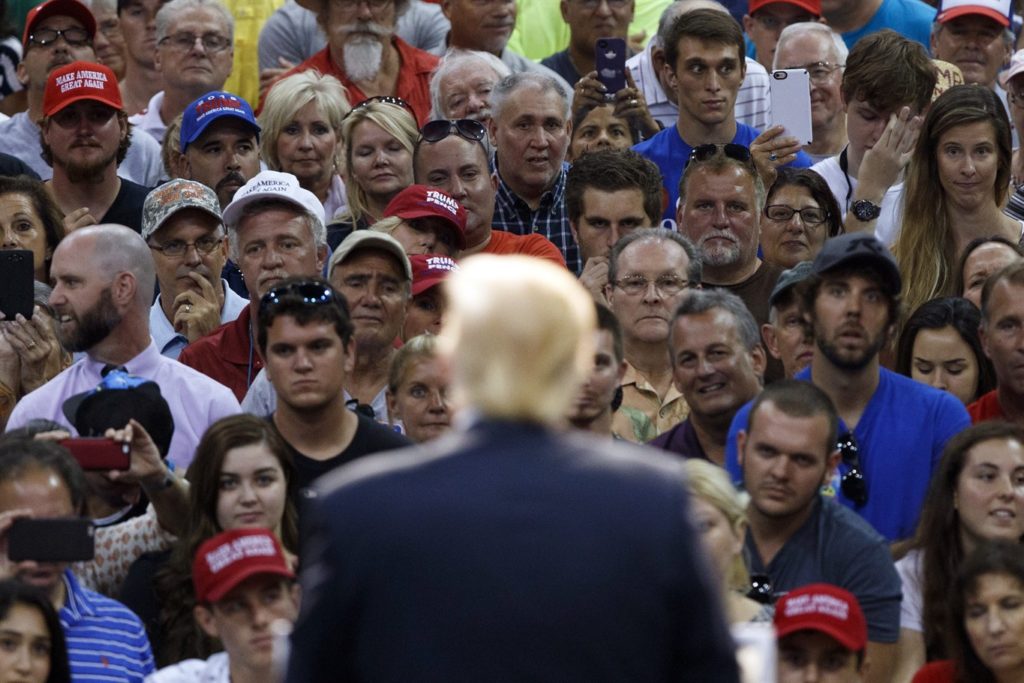
Republican presidential nominee Donald Trump, who has slipped in the polls in recent weeks, has shaken up his campaign again. The billionaire real estate mogul is bringing in Stephen Bannon of Breitbart News as chief executive officer and promoting pollster Kellyanne Conway to campaign manager. “I’ve known both of them for a long time. They’re terrific people, they’re winners, they’re champs, and we need to win it,” Trump told The Associated Press in a phone interview early Wednesday. The move comes just 82 days before the November election and represents yet another overhaul of Trump’s tumultuous quest for the White House. Campaign chairman Paul Manafort, who formally took over the reins following the departure of Corey Lewandowski in June, will maintain his current title, Trump said. Manafort deputy Rick Gates, who has been traveling often with Trump, is expected to maintain a senior role with the campaign. The news, first reported by The Wall Street Journal, comes as opinion surveys show Trump trailing Hillary Clinton nationally and in a host of key battleground states following a difficult campaign stretch that saw him insulting the Muslim parents of a soldier who died in Iraq and temporarily refraining from endorsing House Speaker Paul Ryan, who was involved in a primary in his home state of Wisconsin. In tapping Bannon for a top campaign role, Trump is doubling down on his outsider appeal rather than appeasing more traditional Republicans. The conservative Breitbart figure has been a cheerleader for Trump’s campaign for months and was critical of Republican leaders, including Ryan. Bannon is a former Goldman Sachs banker but does not bring presidential campaign experience to Trump’s White House bid. Conway joined Trump’s campaign earlier this year as a senior adviser. A longtime Republican strategist and pollster, she has close ties to Trump’s running mate, Indiana Gov. Mike Pence. Trump long has resisted pleas from fellow Republicans to overhaul the flame-throwing approach on the campaign trail that powered his surge to the top of the GOP field in the primary season. Instead of working to broaden his appeal, Trump has largely hewed to the large rallies and attention-grabbing comments that appealed to the Republican Party base. “You know, I am who I am,” he told a local Wisconsin television station Tuesday. “It’s me. I don’t want to change. Everyone talks about, ‘Oh, well you’re going to pivot, you’re going to.’ I don’t want to pivot. I mean, you have to be you. If you start pivoting, you’re not being honest with people.” Conway called the moves “an expansion at a critical time in the homestretch.” Details of the new pecking order were hashed out at a lengthy senior staff meeting at Trump Tower Tuesday while Trump was on the road. Additional senior hires are expected in the next few days. Trump, whose campaign is built on his persona as a winner, said several times Wednesday that the campaign was “doing well,” and said his speech hours earlier in Wisconsin Tuesday was well-received. “We’re going to be doing something very dramatic,” Trump added. Trump’s campaign announced earlier that it would finally begin airing its first ads of the general election next week in Florida, Ohio, North Carolina and Pennsylvania. While polls have shown Clinton building a lead following the Philadelphia convention, Democrats are fearful that a depressed voter turnout might diminish support among the minority, young and female voters who powered Obama to two victories. Clinton said at a voter registration event at a Philadelphia high school that she’s “not taking anybody anywhere for granted” in the race for the White House, saying the stakes “could not be higher.” In the Wisconsin outing Tuesday, Trump accused Clinton of “bigotry” and being “against the police,” claiming that she and other Democrats have “betrayed the African American community” and pandered for votes. “We reject the bigotry of Hillary Clinton, which panders to and talks down to communities of color and sees them only as votes — that’s all they care about,” the GOP nominee said in remarks delivered not far from Milwaukee — the latest city to be rocked by violence in the wake of a police shooting. Trump has been lagging in the polls since he was crowned the GOP standard-bearer in Cleveland last month. He charged that Clinton has been on the side of the rioters in Milwaukee, declaring: “Our opponent Hillary would rather protect the offender than the victim.” “The riots and destruction that have taken place in Milwaukee is an assault on the right of all citizens to live in security and to live in peace,” he said. Clinton campaign spokeswoman Jennifer Palmieri responded with a statement early Wednesday accusing Trump of being the bigot instead. “With each passing Trump attack, it becomes clearer that his strategy is just to say about Hillary Clinton what’s true of himself. When people started saying he was temperamentally unfit, he called Hillary the same. When his ties to the Kremlin came under scrutiny, he absurdly claimed that Hillary was the one who was too close to Putin. Now he’s accusing her of bigoted remarks — We think the American people will know which candidate is guilty of the charge,” she said. Republished with permission of the Associated Press.


